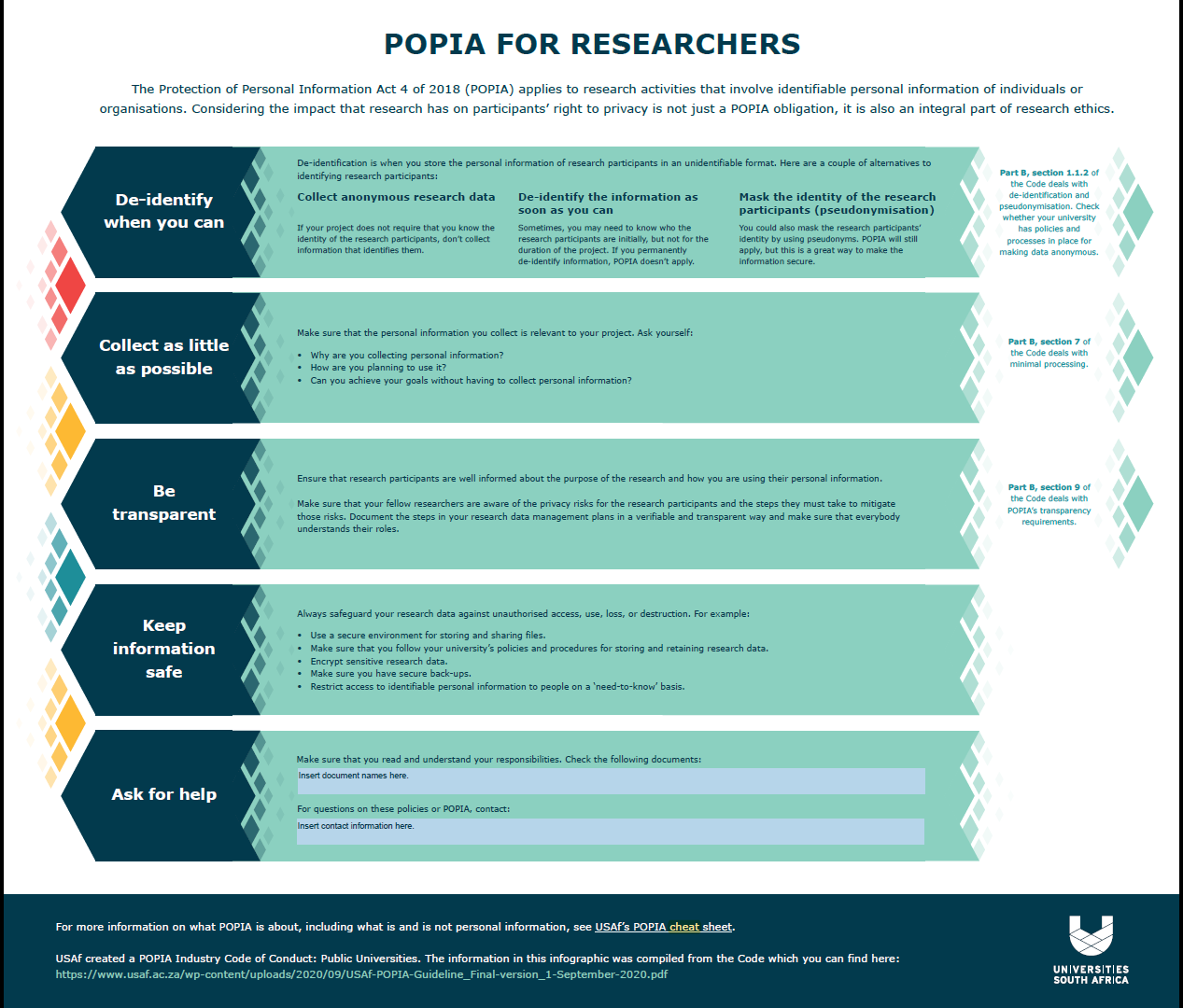The Protection of Personal Information Act (POPIA) No 4 of 2013 came into force on 1 July 2020, and all public and private bodies that are processing personal information have until 1 July 2021 to ensure that they are compliant with the law. On 22 June 2020, President Ramaphosa made the announcement, which meant that organisations including universities have one year to become compliant.
POPIA is extremely relevant to all researchers as it applies to research activities that involve identifiable personal information of individuals or organisations. Considering the impact that research has on participants’ right to privacy is not just a POPIA obligation, it is also an integral part of research ethics.
Overall, POPIA is welcomed as it gives greater guidance to researchers regarding the use (and protection) of personal information for research purposes. This should serve to improve transparency, accountability and oversight in the processing of personal information, and promote public trust in the use of personal information in research contexts.
There is some uncertainty on the application of the POPIA relevant to research, and some members of the South African research community are seeking further guidance. ASSAf has engaged with scientists and other stakeholders around developing a POPIA Code of Conduct for Research to ensure certainty, transparency, and clarity in the processing of personal information for research purposes.
ASSAf is currently inviting the South African scientific community to send lists of issues regarding the processing of personal information for research purposes, or the governance thereof, that the Steering Committee should consider in the POPIA Code of Conduct for Research. In particular, they are looking to receive recommendations as to how the Drafting Committee could address the issues raised. Please send your inputs by 12 February 2021 to Ms Mmaphuthi Mashiachidi (email: mmaphuthi@assaf.org.za).
Visit the interactive site popia.co.za/ for an easily navigable and accessible version of POPIA.

